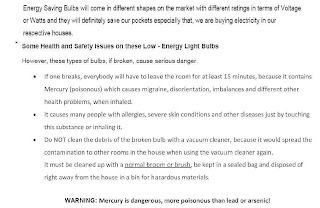Greenpeace vs. Shell: Duelling vessels
head for Arctic from Seattle
Seattle's Elliott Bay is the epicenter of a global energy fight.
The Shell Oil Company has two rigs docked here, the Kulluk and the Noble Discoverer. Also in Elliott Bay is the Greenpeace vessel, Esperanza.
As soon as the ice clears, Shell's rigs will head out for the Arctic. They'll be the first to conduct exploratory drilling there in more than two decades. Greenpeace plans to shadow them, using submarines.
"… to bring back some of the baseline science and some of the information demonstrating what's out there in this pristine environment that really has never been explored by anyone before and yet, a place where Shell wants to begin drilling," says Jackie Dragon, the lead campaigner for Greenpeace's polar expedition.
Shell says there is no real risk.
"If we couldn't do this safely and responsibly, we wouldn't consider doing it," says Shell Spokesman Curtis Smith.
He declined KPLU's request for a tour of their rigs. But he says Shell has invested in retrofitting them to leave the smallest possible impact on the environment, for example, by making sure they capture the mud and cuttings from drilling, so the waste is not discharged in the path of migrating whales.
(KPLU was allowed on the Greenpeace vessel and our summer intern Lindsay Lowe shot this video of the crew preparing one of its two submarines for a test dive in Puget Sound.)
Ice rules
The Shell spokesman says the oil company has taken nothing for granted in its response plan for the remote seas.
"And that's why we are bringing everything that we need with us. Not just the drilling rigs and the personnel, but the on-site and the near-shore and the onshore oil spill response fleet, that in the very unlikely event it was called upon, could begin working and recovering oil within an hour," Smith says.
Greenpeace insists this is not enough. Dragon says the biggest risk is an accident at the end of the drilling window, when ice could prevent any of the response ships from getting to a gushing well.
"And if that occurs and they cannot get to it, and cap it off and drill a relief well, they stand to have an oil gusher that could go on for years," Dragon says. "And that would be devastating to the environment up there."
Shell says they won't let that happen. That's why they've been waiting for the ice to melt before pulling out of Seattle. Shell's drilling window begins "whenever the sea ice clears or on July 15, whichever is sooner," Smith says.
Not their first battle
Shell has a restraining order against Greenpeace. The activists have to respect a federally-mandated exclusion zone and stay one kilometer away from Shell's vessels. That's after some of them were arrested earlier this year for boarding an oil rig in New Zealand – and Shell sued.
(Photos of KPLU's visit aboard the Greenpeace ship Esperanza. For larger images and captions or if your device does not support Flash,see the gallery on our Flickr page.)









 ;
;